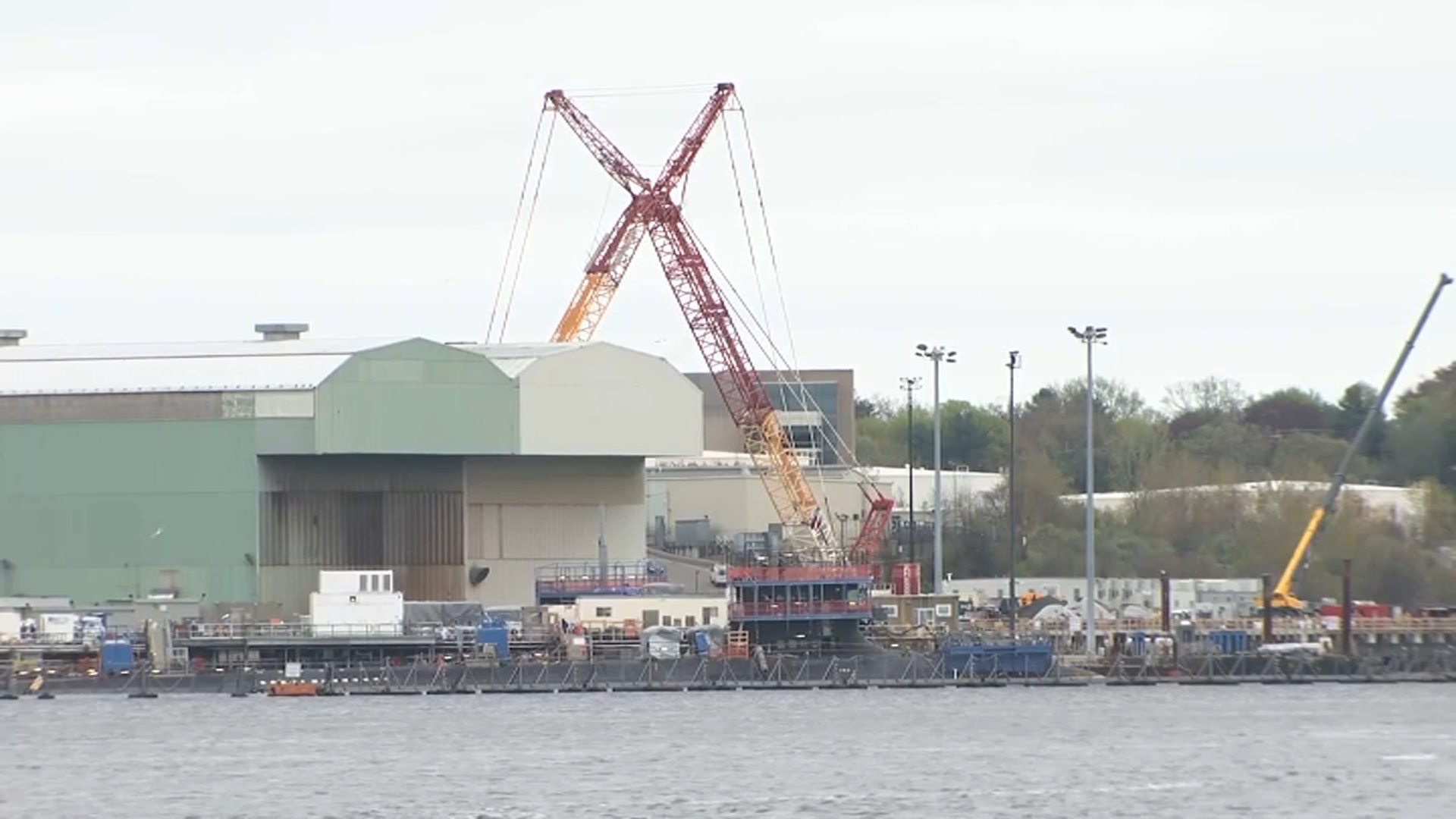Supply chain issues, labor costs, inflation - just three of the reasons power companies around the world are backing out of offshore wind projects.
So is the renewable energy source short circuiting here in Connecticut, too?
NBC Connecticut's Mike Hydeck spoke with Rep. David Michel, a Stamford Democrat that's on the environmental committee.
Mike Hydeck: So after Avangrid backed out of the contract for the Park City wind project in Bridgeport, what kind of setback was that for wind projects overall in Connecticut? Do you think it was?
Get Connecticut local news, weather forecasts and entertainment stories to your inbox. Sign up for NBC Connecticut newsletters.
David Michel: Well, it's a setback, Mike, in terms of time, and we're facing a time in crisis. It's also a setback, because there was a lot of work put into this from various stakeholders and sides. However, there is possibly a positive in this where going back to the table with more knowledge might be helpful.
Mike Hydeck: So Avangrid wanted to renegotiate because of inflation making things significantly more expensive to borrow money for construction, for supplies. Now, there's a multistate agreement between Connecticut, Massachusetts and Rhode Island. Is something like that helpful? Can that help the situation when it comes to that kind of money concern?
David Michel: Absolutely, I mean, the more the merrier, but it's probably not the proper expression on this. But the more we are together, fighting together for a better deal is better for all stakeholders, and particularly the consumers. If we are more in negotiating for a bigger deal, then we can get a better price.
Face the Facts
Face the Facts with NBC Connecticut goes beyond the headlines, asking newsmakers the tough questions, giving an in-depth analysis of the big stories.
Mike Hydeck: The other critics of the early deals were that the agreements were too long. So if there was a 10-year agreement or a 20-year agreement, there's so much fluctuation in the economy between then and now. And it will be moving forward because the economy goes in seven-year cycles. Should those agreements be shorter, so they can be manipulated better?
David Michel: I'm not sure about that. It would be hard for me to comment on this. What I could say, is that part of the problem, at the commission, we had a meeting with Avangrid to talk about this. And one of the things that was clearly an issue was the price of steel. And that led me to make a comment that we can make low carbon concrete here at home. We already have it, and that the price would not be such an issue in terms of fluctuation. And of course, that would including using a lot more labor here, as well as some much better environmental approach with the entire project.
Mike Hydeck: Instead of trucking it across the country or wherever else it would be coming from. So in the new multi-state deal, they talked about sharing procurement costs. Does that mean procurement of parts to build the windmills or procurement of power? We all buy the power in a big bulk agreement. Is that what we're talking about when it comes to sharing procurement?
David Michel: Yeah, I believe so. Yeah, it's we're talking about the same orders. Those marine lease areas are basically divided in sections for several several states, but they're overall, it's one area and there's different section for various bidders.
Mike Hydeck: So there are also some lawsuits from environmentalists. Some are saying the noise will affect humpback and right whales. Others talk about the impact to commercial fishing, which is a livelihood up and down the New England coastline. Is there a concern that some of these court cases could make both the costs of trying to get this project done, and the timeline, just balloon?
David Michel: That would be hard to say on a timeline, because these projects take very long from contract to inception. We do have clear concerns on the environmental side. We have low number of North Atlantic right whales. The North Atlantic right whale is a keystone species. So they maintain phytoplankton, that is food for zooplankton, that does carbon absorption. And that also produces oxygen in the air we breathe. So you know, killing with noise, a pregnant female of that species is insanity, because that would definitely get them much closer to extinction and extinction is forever. So that would forever change our marine environment, including the species in our environment, as you know, an ecosystem losing its keystone and our apex species is damaged, and those pieces are replaced by invasive species, so both environmentalists and fishermen will be, and sometimes both of fishermen and environmentalists will be, definitely should be concerned about this. And we requested a study with several other legislators, we requested a study from Tufts University to compare the use of monopiles, European steel and I used to sell European steel. So I know a little bit about European steel, and the differences in price.
Mike Hydeck: When it comes to the study, this is obviously not the first wind farm that's located in the ocean. Can we not get a study from another location that, where the wind farm has been there for 10 years, and we could see if indeed, it impacts the right whale, the humpback whale, as opposed to waiting, however many years it's going to take to do a study in our waters.
David Michel: Mike, you've taken the words out of my mouth. I keep saying look in Europe, they've been doing it for 30 years, and it's brand new for us. So let's not be fooled by certain approaches that might be dismissing certain things like labor and environmental concerns. And we could do the best we can with the current knowledge, the updated current knowledge that's coming from abroad. We always have to look everywhere for examples.



